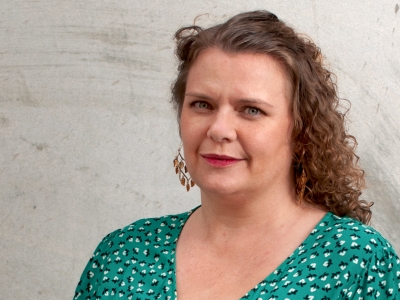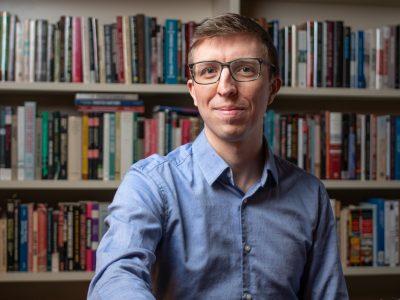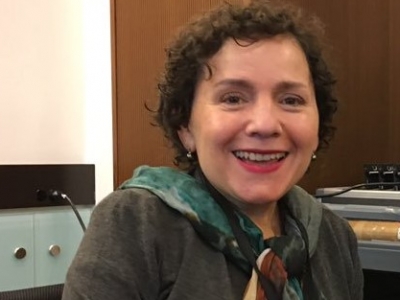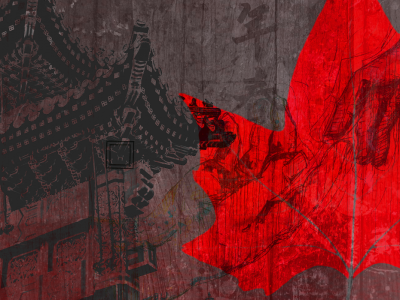By Mary Giles
“How did decolonization, revolution and racial hierarchies influence 20th century international affairs and what were the consequences?” asks Candace Sobers, a professor in Arthur Kroeger College of Public Affairs’ Bachelor of Global and International Studies (BGInS) program. This question has been central to Sobers’s scholarship since graduate studies.
“I’ve always been interested in history, but I did not realize this could be a job until my first year of undergraduate studies at Queen’s University when a history professor suggested that I become a historian.”
“I did an interdisciplinary MSc in the theory and history of international relations at the London School of Economics (LSE). I had planned to study Canadian foreign policy, but due to a scheduling mistake I ended up in the wrong classroom on the first day.
“I found myself in Odd Arne Westad’s seminar on the global Cold War. I have been working in this field ever since. After LSE, I completed my PhD in history at the University of Toronto, with a focus on international history, United States foreign relations and African political history.”
“I came to Carleton in 2015 to help build the new BGInS program,” says Sobers. In BGInS, she teaches global history, global and international theory, and conflict cooperation and change. She is also cross-appointed with the Department of History, the Institute of African Studies and the Institute for Comparative Studies in Literature, Art and Culture.
Sobers specializes in 20th century decolonization, movements of national liberation and the global reach of revolutionary internationalism in developing counties. In her research and teaching, she looks at race, revolution, order and disorder. Her work is interdisciplinary and crosses global boundaries.
Sobers says, “The international system is not a fixed, objective social realm. I see it as a fluid backdrop where elements and characteristics shift over time.”
Shaping the 20th Century
In 2018, Sobers received a SSHRC Insight Development Grant for “Rethinking Liberation: African Independence and the Making of the Twentieth Century.”
Sobers says, “Africa is rarely considered by global historians, anthropologists, political scientists and scholars of postcolonial studies when considering factors that shaped the 20th century world. The battles for social justice and civil equality are viewed from a western context. My research demonstrates that the global movement for African independence changed the sociopolitical landscape.”
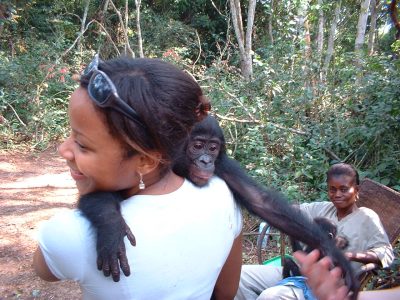
Candace Sobers at the Lola ya Bonobo sanctuary, Kinshasa, Democratic Republic of Congo in 2003, learning about conservation efforts from local experts.
“African independence movements tried to break down white supremacy and predatory capitalism to create a new global order,” says Sobers. “Opponents to the movements worried that self-government on the African continent would undermine global stability.
“While it is easy now to dismiss the decolonization moment in Africa, the historical record demonstrates that powerful states were sincerely frightened of what this new world would look like. This helps to explain the disappointments of Third World solidarity movements — challenges from within and from without.”
Sobers’s research uses the case studies of Ghana (1957), Congo-Kinshasa (1960) and Angola (1975) to show that different waves of independence permanently altered racialized geopolitics by challenging established ideas about race, self-determination and state-making.
She says, “African independence movements and their allies engaged with two distinct visions of the developing post-1945 order — a hegemonic international system, tainted by colonialism and minority rule, and an emerging global system, characterized by racial equality and self-determination.
“This project recovers the emancipatory possibilities envisioned by Africans and non-Africans ‘in struggle,’ noting how they created spaces for expanded definitions of solidarity, sovereignty and liberation.”
Sobers’s article, “Independence, Intervention, and Internationalism: Angola and the International System, 1974-1975,” published in the Journal of Cold War Studies, describes the conflict in the former Portuguese colony of Angola and how it escalated into an international crisis.
“As Angola’s nationalists named and confronted ‘the enemy,’ an internationalized adversary (not just imperial Portugal) required a globalized response,” she says. “I look at the multiple ways the independence movements, as transnational actors, interacted with the globally attentive public. These movements engaged in both formal and information internationalism.”
Revolutionary Movements
The global and international impact of movements for decolonization, self-determination and independence are not the only focus of Sobers’s work. She also examines the impacts of such movements within powerful states.
One of her primary areas of research is on U.S. foreign policy, especially regarding the Cold War “Third World.” In particular, she is interested in the U.S. response to revolutionary movements. “My earliest writing was on the challenge of Cuba as a revolutionary internationalist power and the rising animosity between Washington and Havana,” she says.
In the article, “J. William Fulbright, the Contested Legacies of the American Revolution, and the War in Vietnam,” published in Modern American History, Sobers considers the contradictory response by the U.S. to foreign revolutions.
“The American Revolution inspired two centuries of radical political change around the world,” she says. “But the U.S. deemed revolution for independence politically (and racially) ‘unsuitable’ for other parts of the globe.”
This summer, Sobers will continue to explore the intellectual history of U.S. foreign relations and how ideas about the 1776 Declaration of Independence influenced American attitudes towards the global revolutions of the 20th century.
Research during a Global Pandemic
The BGInS program teaches students to understand global issues and events. “The COVID-19 pandemic has created an unprecedented opportunity for BGInS students to study the impacts of a truly global and international phenomenon while it is occurring,” says Sobers. Students and faculty can investigate why it happened, how it is spreading and the effects it has on societies around the world.
“At the same time, the pandemic has presented serious challenges to pursuing international research and scholarship for faculty and students,” says Sobers. “The inability to travel to archives in other countries is a serious limitation for the historical study of international and global issues, only partially mitigated by the increasing prevalence of digital resources.
“Primary source research is the foundation of historical inquiry. As historians, we follow the evidence, even while acknowledging that all sources have limitations. Archival research is one of the aspects of the work that I enjoy the most. I have been fortunate to do research in Portugal, the U.K. and at multiple sites in the U.S., including the Schomburg Center for Research in Black Culture and the United Nations Archives in New York.”
The pandemic has forced the cancellation of planned activities, including research trips. “It is of course difficult for us to have our research put on hold,” says Sobers. “But I also think about our student researchers, like PhD candidates, who were eagerly anticipating their first formal research trips. Such trips are a rite of passage in a history PhD — it would really make us sad to have to miss such an opportunity. Undergraduate students have also had to rethink their research plans.”
Teaching in the context of the pandemic is also a challenge. Sobers says that while digital platforms and video conferences can be helpful, keeping all students engaged — particularly in large survey courses in first and second year — continues to be a challenge.
“In the past year I’ve really realized how much I miss the classroom,” she says. “In terms of online teaching, I prefer to teach synchronously, though I also put substantial effort into asynchronous, recorded lectures. It’s challenging to have these important, complex or difficult conversations under these conditions, but we do our best.”
Monday, March 15, 2021 in Faculty Research, FPA Voices
Share: Twitter, Facebook
